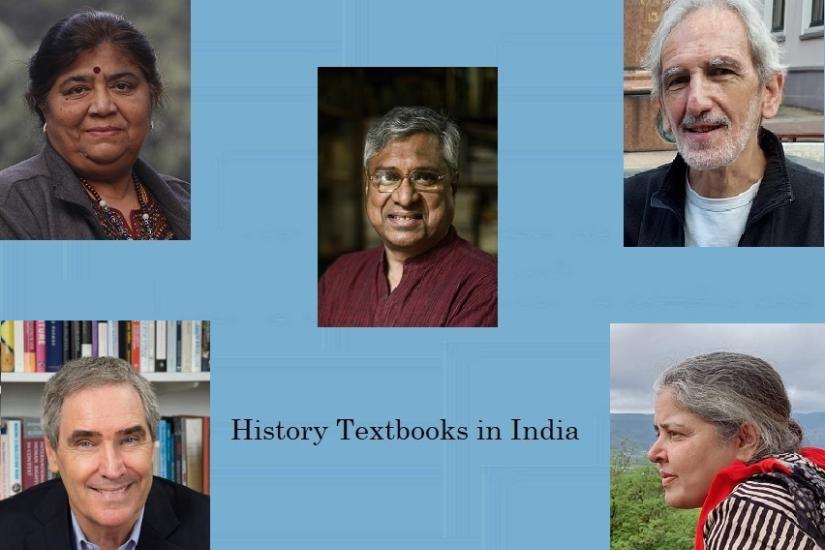
In the first part of this roundtable on history textbooks in India, Antoon de Baets will recall three episodes of “history textbook wars.” The first took place between 1977 and 1979, when the Janata Party, a precursor of the BJP, tried to ban five textbooks essentially because they defended a secular view of history. Between 1998 and 2004, when the BJP came to power for the first time, a massive attempt to “saffronize” textbooks was undertaken and new hastily written textbooks with a heavy pro-Hindu bias were introduced in the schools. Lamentably, the present term of government is characterized by much the same attempts to uncritically glorify the Hindu past and to disparage the periods of Muslim rule, inventing many a myth along the way.
In the second part, Aditya Mukherjee will turn to the use of history by the colonial state since the 19th century to create a new raison d’etre for imperial rule and deny democratic rights demanded by the freedom movement by creating “communal” (religion-based, divisive, history and political) identities. Although many of the religious communal forces were pushed back after independence in 1947, they continued to work at the grassroots, including by teaching distorted and often totally imaginary “history”. Whenever these Hindu communal forces came close to state power, including since the 2014 election of the BJP, these distorted “histories” were aggressively pushed through official and non-official channels, combined with attacks on historians and the weaponization of these invented “histories” against minority communities.
In the final part, Shraddha Kumbhojkar, will focus on textbooks administered by the school boards of Maharashtra, a state that had a long exposure to the colonial education system as it was a part of the Bombay Presidency during the colonial rule. After independence, Maharashtra has had the distinction of publishing several million textbooks for school children every year. The major challenges faced by the textbook bureau, especially in case of History, in the last few decades have included the rise of identity politics, rows over the content of historical narratives and political appointments on the textbook committees that have resulted in errors and omissions being thrust upon the textbooks without following the established procedures of seeking stakeholders’ opinions on any new textbook.
Antoon de Baets is professor emeritus of History, Human Rights and Ethics at the University of Groningen, The Netherlands.
Aditya Mukherjee is professor emeritus of Contemporary Indian History at Jawaharlal Nehru University and President of the Indian History Congress
Shraddha Kumbhojkar is professor of History and head of the History Department at Savitribai Phule Pune University
The Zoom link will be sent upon request.